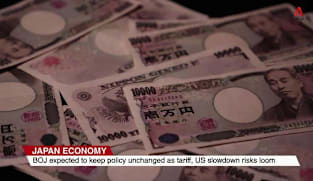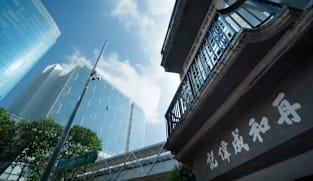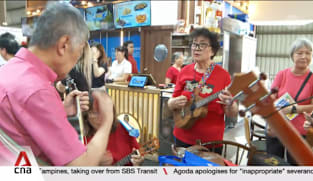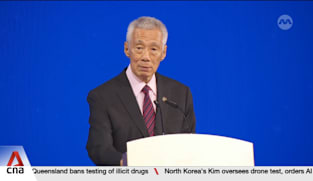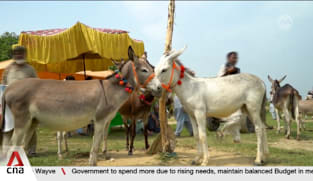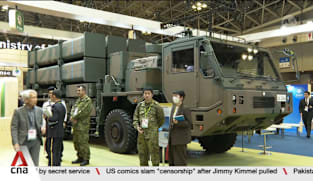Ministerial statement: Grace Fu on Pasir Panjang Terminal oil spill
Singapore has made “good progress” in its clean-up of the Pasir Panjang Terminal oil spill, with more than 1,200 tonnes of oil-soaked sand and debris collected as of Jun 30. Much of oil slicks on Singapore’s beachfront have been removed. The bulk of the oil-soaked sand has been removed and sent to toxic waste treatment facilities for safe treatment and disposal. Booms have been deployed to prevent the oil from being washed ashore or into inland canals. Sustainability and the Environment Minister Grace Fu, who gave this update in Parliament on Tuesday (Jul 2), said the first phase of the clean-up focused on removing the oil slicks and contaminated sand from the surfaces of affected beaches and deploying booms to avoid further contamination. In its second phase now, the clean-up involves deploying more specialised teams to areas which are difficult to clean, like rock bunds, breakwaters and oil trapped deeper in the sand. When this is completed, the clean-up will involve removing tar balls from the beaches and inspecting the affected areas. This is expected to take around three months. The cordoned-off areas of the beaches at Sentosa, along East Coast Park and the Southern Islands will progressively reopen for land-based activities. The water quality will be tested to ensure that it is back to normal and stable for at least a week before resuming swimming and other primary-contact sea activities. Ms Fu said the Government understands the frustration and inconvenience that businesses have experienced due to the oil spill. This is why Sentosa Development Corporation (SDC), which manages Sentosa and businesses on the Southern Islands, and agencies such as NParks that collectively manage the beachfront along East Coast Park, have been proactively reaching out to their tenants. They are developing rental deferral measures for affected businesses on a case-by-case basis. SDC will also look to promote a return of footfall through marketing and social media support. As for claims for economic losses resulting from the oil spill, contact details of the insurer have been made available to the public. Ms Fu said the Government is considering mobilising volunteers for the final phase of the clean-up, where remnant oil deposits have hardened and mixed with sand. These will need to be sieved and separated for removal. This process is labour-intensive and more hands are needed to help relieve the cleaners and accelerate the reopening of the beaches. Ms Fu said the Government will tap on those who have registered with NParks, as well as volunteer groups which have contacted her. The Public Hygiene Council will help to train, equip and coordinate with volunteers for this effort. Ms Fu said this will be a “safe and meaningful way” for Singaporeans to contribute to the reopening of the beaches. Turning to concerns over the possible impact on Singapore’s water supply, Ms Fu said there has been no impact. If any plant in the water supply system is disrupted, PUB will step up production capacity in the remaining plants. Ms Fu gave the assurance that agencies will continue to press on with cleaning operations and monitor the quality of Singapore’s air, food and water, as well as the impact on affected stakeholders while roping in volunteers to help “nurse our cherished environment back to health” as soon as possible.
Singapore has made “good progress” in its clean-up of the Pasir Panjang Terminal oil spill, with more than 1,200 tonnes of oil-soaked sand and debris collected as of Jun 30. Much of oil slicks on Singapore’s beachfront have been removed. The bulk of the oil-soaked sand has been removed and sent to toxic waste treatment facilities for safe treatment and disposal. Booms have been deployed to prevent the oil from being washed ashore or into inland canals. Sustainability and the Environment Minister Grace Fu, who gave this update in Parliament on Tuesday (Jul 2), said the first phase of the clean-up focused on removing the oil slicks and contaminated sand from the surfaces of affected beaches and deploying booms to avoid further contamination. In its second phase now, the clean-up involves deploying more specialised teams to areas which are difficult to clean, like rock bunds, breakwaters and oil trapped deeper in the sand. When this is completed, the clean-up will involve removing tar balls from the beaches and inspecting the affected areas. This is expected to take around three months. The cordoned-off areas of the beaches at Sentosa, along East Coast Park and the Southern Islands will progressively reopen for land-based activities. The water quality will be tested to ensure that it is back to normal and stable for at least a week before resuming swimming and other primary-contact sea activities. Ms Fu said the Government understands the frustration and inconvenience that businesses have experienced due to the oil spill. This is why Sentosa Development Corporation (SDC), which manages Sentosa and businesses on the Southern Islands, and agencies such as NParks that collectively manage the beachfront along East Coast Park, have been proactively reaching out to their tenants. They are developing rental deferral measures for affected businesses on a case-by-case basis. SDC will also look to promote a return of footfall through marketing and social media support. As for claims for economic losses resulting from the oil spill, contact details of the insurer have been made available to the public. Ms Fu said the Government is considering mobilising volunteers for the final phase of the clean-up, where remnant oil deposits have hardened and mixed with sand. These will need to be sieved and separated for removal. This process is labour-intensive and more hands are needed to help relieve the cleaners and accelerate the reopening of the beaches. Ms Fu said the Government will tap on those who have registered with NParks, as well as volunteer groups which have contacted her. The Public Hygiene Council will help to train, equip and coordinate with volunteers for this effort. Ms Fu said this will be a “safe and meaningful way” for Singaporeans to contribute to the reopening of the beaches. Turning to concerns over the possible impact on Singapore’s water supply, Ms Fu said there has been no impact. If any plant in the water supply system is disrupted, PUB will step up production capacity in the remaining plants. Ms Fu gave the assurance that agencies will continue to press on with cleaning operations and monitor the quality of Singapore’s air, food and water, as well as the impact on affected stakeholders while roping in volunteers to help “nurse our cherished environment back to health” as soon as possible.








